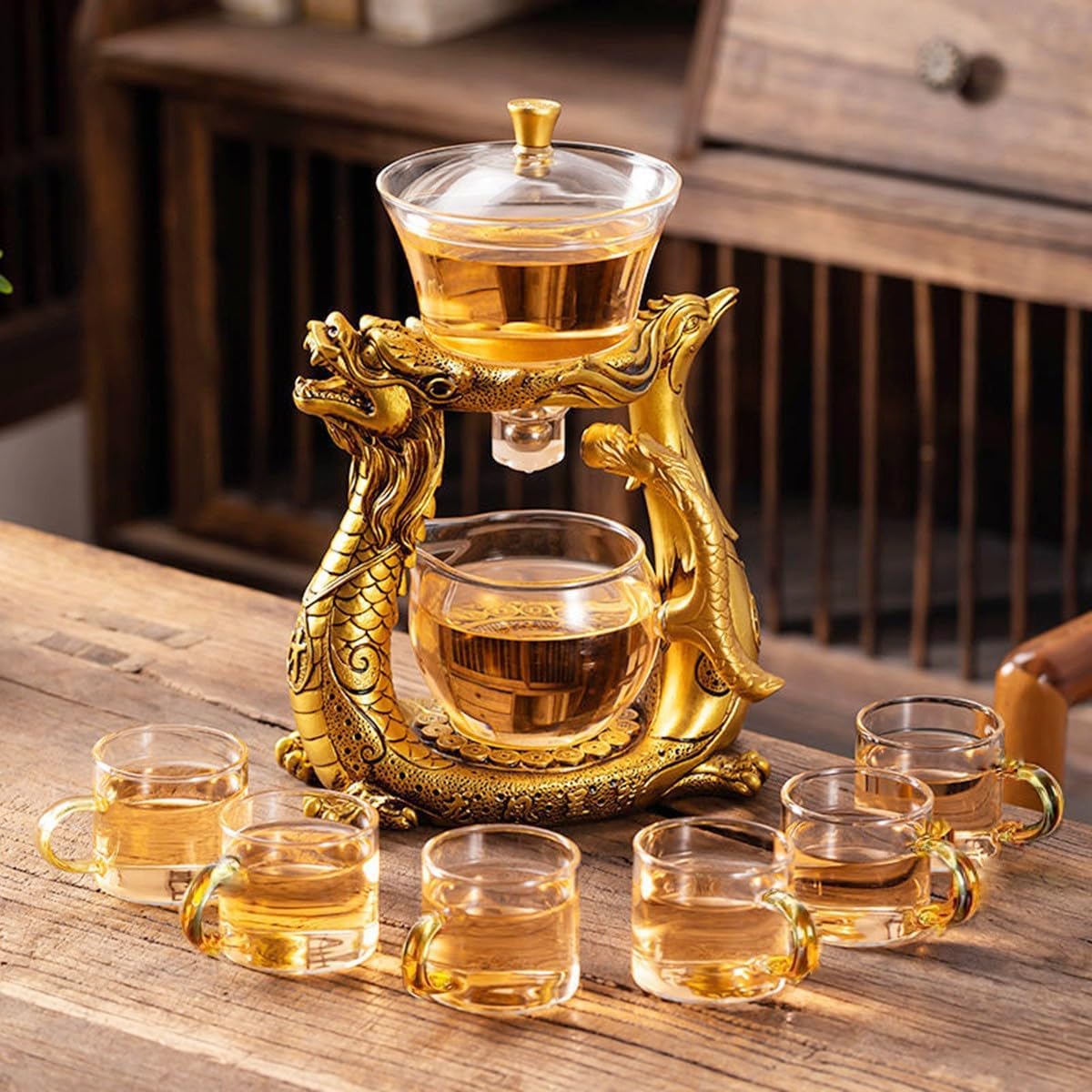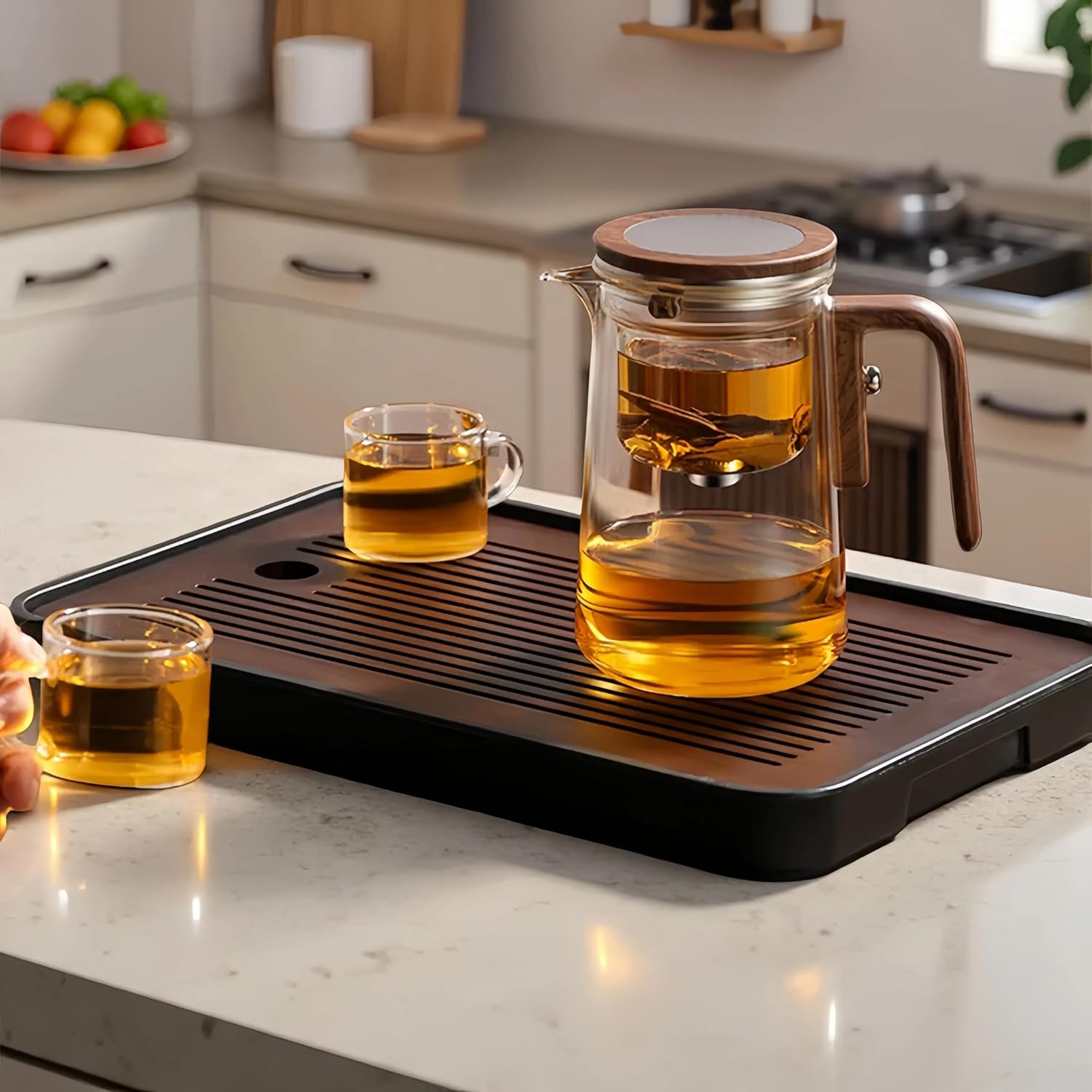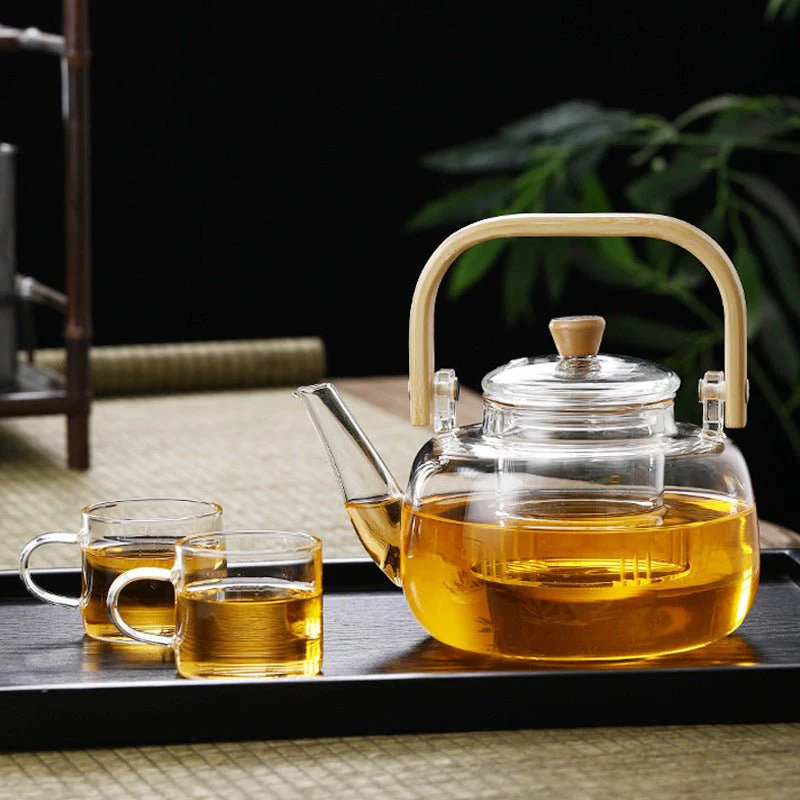Chinese Health Preservation-Tea Culture
2025-08-08
Tea is the quintessential Chinese drink. The history of Chinese beverages is unique in that it includes a rich tea culture. It has a rich history with diverse expressions and cultural connotations. The health-promoting techniques embedded in tea culture are deeply cherished by the Chinese people, especially the elderly, for their unique charm. For thousands of years, many vivid and fascinating tales of tea drinking have emerged, and stories about centenarians are particularly precious and worthy of careful scrutiny.
As a beverage, tea is a quintessentially Chinese drink and a daily necessity — one of the 'Seven Essentials of Opening the Door'. Many centenarians have a special fondness for tea. Everyone is equal when it comes to tea drinking, from the poor in mountain villages to the wealthy in urban areas, and from scholars who adapt to worldly life to monks who have seen through the mundane world. For example, Wu Tunan, known as the 'Modern Tai Chi Master', drank tea day and night throughout his life. During the Tang dynasty, the eminent 120-year-old monk Congshen, also known as the 'Zhaozhou Zen Master', founded the 'Zhaozhou School of Buddhism', incorporating the Zen practice of 'drinking tea', embodying the principle that 'the ordinary mind is the way'. Li Qingyuan, a Qing Dynasty centenarian, greatly admired the words of Qing scholar Lu Longqi: 'Sufficient firewood and rice, free from worries, early payment of government taxes, no shocks or humiliations, no debts that lead to interest, no pawnshops, and simple tea and simple meals can prolong life.'
Li Qingyuan said, 'This is truly the secret to health preservation and the wise motto for longevity. By following this, you can achieve immortality without the need for magical herbs or elixirs.'One way centenarians achieve health through tea is by drinking different teas according to the season to allow them to function optimally within the body. Ding Funi, aged 107, from Luohe City in Henan Province, is a prime example of this approach. She drinks flower tea in spring, green tea in summer, oolong tea in autumn and black tea in winter. While some people were puzzled by her tea-drinking habits, she explained that drinking flower tea in spring can dispel the cold accumulated in the body during winter and promote yang energy production. Green tea, with its bitter and cooling properties, can relieve the effects of summer heat, detoxify the body and quench thirst. Oolong tea, with its neutral properties, can eliminate excess heat and restore body fluids in autumn. Black tea, which is sweet and moist, is rich in protein and aids digestion, nourishing and strengthening the body in winter.
As the birthplace of tea, my country has a wide variety of health-promoting teas, one of which is lei cha (pounded tea). Fan Xiangxiu, a centenarian from Taohua County in Hunan Province, particularly likes the local lei cha. To make lei cha, tea leaves, peanuts, sesame seeds and other ingredients are placed in a mortar and pestle. A wooden stick is then used to pound the mixture, gradually increasing the speed until it becomes a paste. Notably, this area is a longevity region in my country where locals have a tradition of drinking lei cha, a type of traditional Chinese tea. Fan Xiangxiu's longevity is likely related to this habit. Furthermore, her pillow is unique in that it is filled with tea leaves and rice husks. Modern medicine confirms that using tea leaves as pillow fillings can help sharpen the mind and improve eyesight.
Drinking tea can be beneficial, but, as with everything, it should be consumed in moderation. Excessive consumption can lead to electrolyte imbalances and even heart and lung dysfunction. This is why there are folk sayings about avoiding strong tea, drinking tea on an empty stomach and drinking tea left overnight. Professor Chen Naxun, a 104-year-old member of the China Democratic League and renowned biologist, only drinks around five cups of strong tea a day. Yuan Dunzi and Mao Huiqin, a centenarian couple from Shanghai's Jing'an District, adhere to strict dietary and daily routines. They even maintain a set tea-drinking routine: he typically drinks a cup of green tea at 10 am and 3 pm. He never drinks again after 3 pm.
Drinking tea can be beneficial, but, as with everything, it should be consumed in moderation. Excessive consumption can lead to electrolyte imbalances and even heart and lung dysfunction. This is why there are folk sayings about avoiding strong tea, drinking tea on an empty stomach and drinking tea left overnight. Professor Chen Naxun, a 104-year-old member of the China Democratic League and renowned biologist, only drinks around five cups of strong tea a day. Yuan Dunzi and Mao Huiqin, a centenarian couple from Shanghai's Jing'an District, adhere to strict dietary and daily routines. They even maintain a set tea-drinking routine: he typically drinks a cup of green tea at 10 am and 3 pm. He never drinks again after 3 pm.
So, what is it about tea that promotes longevity? Traditional Chinese medicine believes that tea can clear the mind and awaken the senses; cool the liver and gallbladder; clear heat and phlegm; benefit the lungs and stomach; improve eyesight; and relieve fever. Li Shizhen's Compendium of Materia Medica states: 'Tea is bitter and cold, and is extremely effective in reducing internal heat. Internal heat is the root of all diseases; reducing internal heat leads to a clear mind.' Modern medicine suggests that ageing is linked to the excessive oxidation of unsaturated fatty acids in the body, which is in turn linked to substances called free radicals. The polyphenols, caffeine and vitamins C and E in tea have a strong scavenging effect on free radicals — this is the secret to tea's health benefits and the key to longevity.
So how to choose a set of teapot to make a premium tea? The choice of teapot set is particularly important. The material of tea set must be high borosilicate glass. Now let me recommend this one of RORA the besting model to you:
https://www.rora.top/products/all-in-one-automatic-glass-tea-set-with-yellow-accents
So how to choose a set of teapot to make a premium tea? The choice of teapot set is particularly important. The material of tea set must be high borosilicate glass. Now let me recommend this one of RORA the besting model to you:
https://www.rora.top/products/all-in-one-automatic-glass-tea-set-with-yellow-accents




